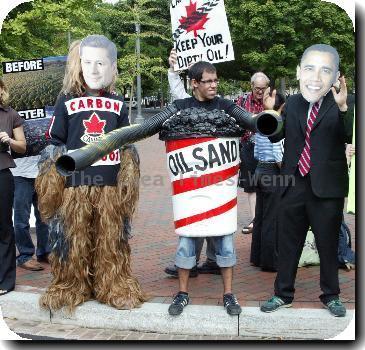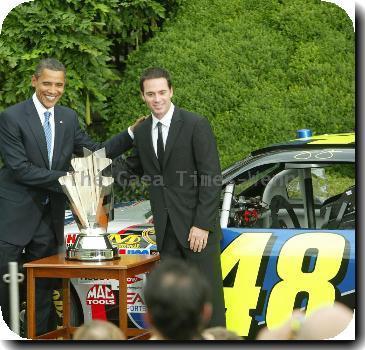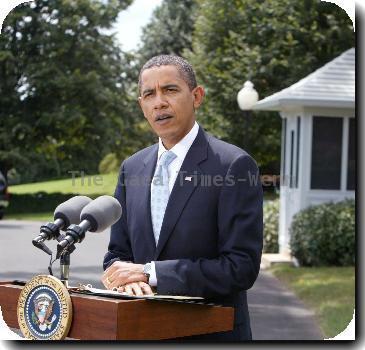Afghan President Karzai promises to eliminate corruption _ but offers no specifics
By Heidi Vogt, APTuesday, November 3, 2009
Karzai promises reform _ but without specifics
KABUL — Afghanistan’s president welcomed his new term — achieved after his main opponent withdrew from a runoff election — by reaching out to opponents Tuesday and promising to banish the corruption that has undermined his administration.
Hamid Karzai did not spell out how he would institute reforms or mention whether he is willing to make concessions to his opponents.
Karzai spoke a day after being declared victor of an election so marred by fraud that it took two and a half months, and intense international pressure, to resolve. His main opponent, Abdullah Abdullah, said when he dropped out of the planned runoff that he was withdrawing because it could not be free or fair.
Karzai said in a speech he wants people from every part of the country in his government, including political opponents. But he never mentioned Abdullah by name.
“Those who want to work with me are most welcome, regardless of whether they opposed me in the election or whether they supported me in the elections,” Karzai said.
Abdullah, who once served as Karzai’s foreign minister, has said he will not join Karzai’s administration, but will work from the outside for reforms and for national unity.
Even so, people close to Karzai and Abdullah say they spent the past few days negotiating privately about ministry seats or accommodating Abdullah’s platform in some way. The U.S. and its allies have also pressured Karzai to institute reforms and to reach out to the Abdullah camp.
President Barack Obama said Monday that he had called for a new chapter during a telephone call congratulating Karzai over his re-election. When Karzai offered assurances, Obama told him that “the proof is not going to be in words. It’s going to be in deeds.”
Karzai said he needs international support and does not want to squander the goodwill of those supplying thousands of troops and funds to Afghanistan.
He said he wants to “make sure that the taxpayers’ money coming to us from your countries is spent wisely and rightly by us, the Afghan government, and also by the donors themselves.”
He also said he would be as inclusive as possible, including welcoming Taliban who are ready to work with the government.
“We want our Taliban brothers and all others to come back and join with us,” he added.
The Taliban claimed their own victory, saying in a statement the canceled runoff showed their efforts to derail the vote by threats and attacks were successful.
“Our brave mujahedeen were able to disrupt the entire process. Even the airstrikes and ground forces were not able to stop our mujahedeen from their attacks,” the statement said. The canceled runoff vote also showed that Afghans heeded their call not to participate in an election they said was the tool of foreigners, the statement said.
Election officials had cited security concerns as one reason not to go ahead with a vote with a foregone conclusion.
Karzai acknowledged to reporters Tuesday that Afghanistan “has a bad name from corruption.” He repeatedly promised to tackle corruption during his previous five years as president but with little success.
“We will do our best through all possible means to eliminate this dark stain from our clothes,” he said.
Standing next to his new vice president — who has denied accusations of drug ties and corruption when he was last in the government as defense minister — Karzai said the problem of corruption was not certain officials. Instead, he blamed inadequate laws and enforcement.
“We need to review the law where we have problems and draft what is needed,” he said, adding that an anti-corruption commission created a year ago should also be strengthened.
British Prime Minister Gordon Brown said Karzai should “make clear that he is going to take immediate action on corruption.”
Brown said Britain wants to see “a corruption-free government, an inclusive government and a government which will tackle the problem of bringing prosperity to the Afghan people.”
The messy end to the election left the United States and its allies with the difficult task of helping the Karzai government restore legitimacy both at home and abroad. Public support for the war is already dropping in the U.S. and other countries with troops in Afghanistan. The image of a fraud-stained Afghan partner does little to reverse the slide.
French Foreign Minister Bernard Kouchner said France would stay the course.
“I know we have to continue,” Kouchner said Tuesday.
But analysts already have raised doubts about the ability of European governments to justify further involvement in an increasingly unpopular war.
“The debate in most European countries about a possible extension of mission is already very difficult, irrespective of the latest electoral fiasco,” said Hugo Klijn, a senior analyst at the Clingendael think tank in The Hague, Holland.
NATO’s core mission “is to spread the power of the legitimate government in Kabul, and that has now been called into question,” he said.
Nations contributing troops were also reluctant to go through with a Nov. 7 runoff that risked lives.
Taliban attacks killed dozens during the August first round, while in some areas, militants cut off the ink-marked fingers of people who had voted.
Establishing security for a hastily arranged runoff would have posed a serious challenge, and some NATO officers voiced relief at the vote’s cancellation.
Col. Benoit Durieux, who heads a French Foreign Legion battalion in the Surobi area east of the capital, said his men could now focus on other tasks.
“We clearly won the first round against the Taliban in terms of securing the elections,” Durieux told The Associated Press in the Tora forward operating base, about 40 miles (65 kilometers) east of Kabul. “Why give them the opportunity of a replay?”
The Taliban said last week’s suicide bombing of a guesthouse used by U.N. election workers “showed that even they are not safe in Kabul.” The attackers killed five U.N. staffers and three Afghans.
At Kabul’s airport Tuesday, U.N. election workers saw off the caskets of two female colleagues who were killed in the assault, one from the Philippines and one from Liberia. Red-eyed diplomats — some in suits and some in jeans — hugged each other and laid their hands on the caskets, draped with blue U.N. flags.
“They came here to put their footprints on the path that must lead to peace for this country,” Kai Eide, the top U.N. official in Afghanistan, said at the brief ceremony. He urged those at the U.N. to “continue to walk that path.”
In northern Kunduz province, Afghan and international troops have been fighting for two days to take the Taliban-held town of Ghor Tapa, provincial police Chief Abdul Razaq Yaqubi said. About 200 insurgents were holed up in the town, including foreign fighters, mostly Chechens, he said.
Yaqubi said 11 insurgents and one Afghan soldier were killed.
Local residents were helping the Afghan forces fight the Taliban, Yaqubi said. “The villagers are fed up with this insurgency,” he said.
Associated Press writers Elena Becatoros in Kabul, Alfred de Montesquiou in Surobi and Slobodan Lekic in Brussels contributed to this report.
Tags: Afghanistan, As-afghanistan, Asia, Barack Obama, Central Asia, Kabul, North America, Political Corruption, Political Issues, Run-off Elections, United States, Vote




